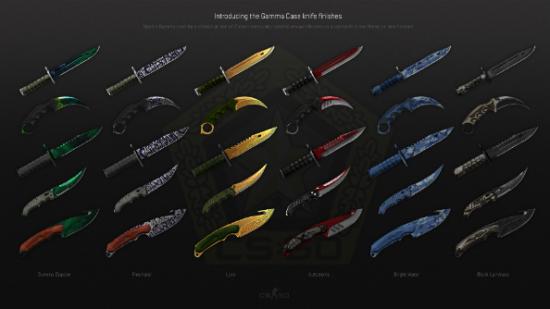The Hookup Doctor's Guide
Navigating the world of modern dating and relationships.
CS:GO Prime Matchmaking: Why It Feels Like a Game of Roulette
Experience the thrill of CS:GO Prime Matchmaking! Discover why each match feels like a spin on the roulette wheel of fate.
Understanding CS:GO Prime Matchmaking: The Elements of Chance
In the world of CS:GO Prime Matchmaking, players often wonder about the impact of chance on their gaming experience. Prime Matchmaking, which requires a linked phone number and a certain level of playtime, is designed to pair players with others of similar skill levels. However, even in this seemingly structured environment, elements of chance come into play. Factors like server location, matchmaking algorithms, and team composition can influence the outcomes of matches. Understanding these elements helps players navigate their gaming journey more strategically.
Moreover, chance in CS:GO Prime Matchmaking is not only about who you are matched with but also about the unpredictability of each game itself. In every round, variables such as player behavior, individual skill levels, and even unforeseen events, like a teammate disconnecting, can shift the odds. While skill and strategy are paramount, acknowledging the role of chance can foster a healthier mindset among players. Embracing both skill and luck can lead to a more enjoyable gaming experience and enhance your overall performance.

Counter-Strike is a popular tactical first-person shooter game that involves team-based gameplay and strategic planning. One of the most sought-after weapons in the game is the awp gungnir, known for its high damage and long-range accuracy, making it a favorite among snipers.
Is CS:GO Prime Matchmaking Rigged? Exploring the Roulette Effect
In the world of CS:GO, the debate surrounding Prime Matchmaking has been a hot topic among players. Many have raised concerns about whether the matchmaking system is rigged or if external factors influence game outcomes, leading to what some players refer to as the Roulette Effect. This phenomenon describes the random fluctuations in matchmaking quality and player skill levels that can result in frustrating gameplay experiences. Players often find themselves matched against opponents with vastly different skill levels, raising questions about the fairness and integrity of the system.
The perception of a rigged matchmaking system can stem from various factors, including inconsistent performance, team compositions, and the randomness that can occur within a match. As players navigate the complexities of CS:GO, understanding the underlying mechanics of Prime Matchmaking is crucial. It is essential to explore the Roulette Effect in detail, as it can illuminate how even seasoned players can experience unexpected wins or losses. By diving into the statistics and player experiences, we aim to shed light on whether there is a grain of truth behind the accusations of a rigged system and encourage gamers to engage in constructive discussions around improving the overall matchmaking experience.
Why Does Matchmaking Feel Unpredictable? Analyzing CS:GO's Ranking System
The world of matchmaking in CS:GO (Counter-Strike: Global Offensive) can often feel unpredictable to players. This unpredictability stems primarily from the game's ranking system, which is designed to evaluate player skills based on performance metrics such as kills, deaths, and overall teamwork. However, the algorithm’s complexity can lead to mismatches where teams are not evenly balanced. To better understand this phenomenon, it's essential to look at factors like smurfs—experienced players creating new accounts, and the dynamic nature of player rankings that can fluctuate after each game. Consequently, players may find themselves facing opponents who dramatically deviate from their own skill level, contributing to the overall perception of unpredictability.
Additionally, the CS:GO ranking system undergoes constant revisions by developers to maintain fair play and player engagement. Updates can change how ranks are assigned and interpreted, further influencing the matchmaking experience. Furthermore, players frequently report feelings of uncertainty when matches suddenly shift from being straightforward to highly competitive, often due to factors outside of their control, such as server lag or teammate performance. To cope with this inconsistency, players should focus on improving their skills and understanding the full spectrum of matchmaking mechanics, which could enhance both their gameplay experience and outcomes in the long run.